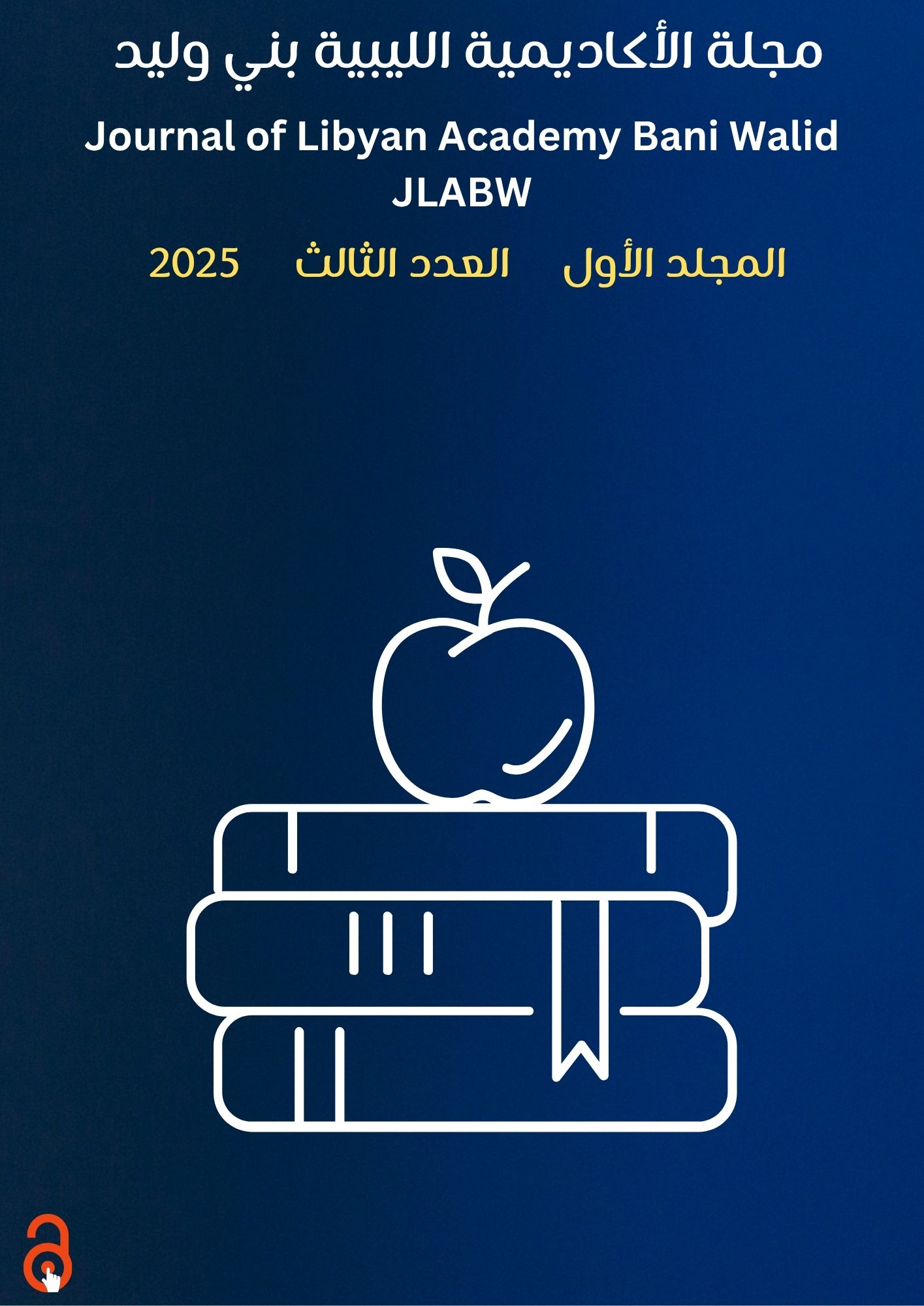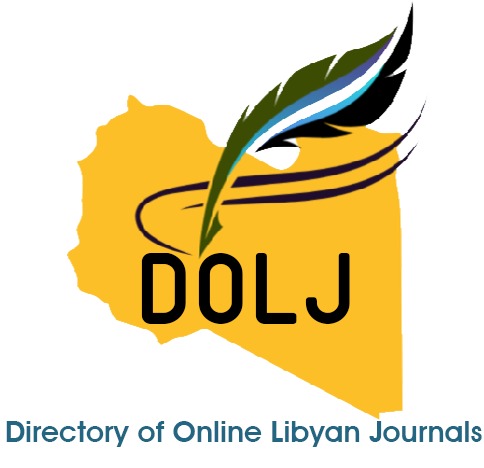الحماية الدولية لحقوق الأشخاص ذوي الإعاقة: دراسة في دور المنظمات الحكومية المتخصصة والمنظمات غير الحكومية
DOI:
https://doi.org/10.61952/jlabw.v1i3.251الكلمات المفتاحية:
الأشخاص ذوو الإعاقة، الحماية الدولية، المنظمات الحكومية، المنظمات غير الحكومية، إعادة التأهيلالملخص
تستخدم هذه الدراسة، التي تحمل عنوان "الحماية الدولية لحقوق الأشخاص ذوي الإعاقة: دراسة في دور المنظمات الحكومية المتخصصة والمنظمات غير الحكومية"، منهجية تحليلية وصفية لفحص الأدوار المتعددة التي تلعبها الجهات الفاعلة الدولية في حماية حقوق الأشخاص ذوي الإعاقة. يتناول البحث السؤال المحوري حول كيفية مساهمة كل من الهيئات الحكومية الدولية المتخصصة والمنظمات غير الحكومية في إنشاء وتطبيق آليات الحماية، لا سيما وأن التشريعات الوطنية وحدها أثبتت عدم كفايتها. تنقسم الدراسة إلى قسمين رئيسيين: دور المنظمات الحكومية المتخصصة ودور المنظمات غير الحكومية.
يسلط القسم الأول الضوء على مساهمات المنظمات الحكومية الدولية المتخصصة الرئيسية. حيث أنشأت منظمة العمل الدولية (ILO) صكوكًا دولية مبكرة تركز على التأهيل المهني والتوظيف للأشخاص ذوي الإعاقة، وأصدرت التوصية رقم 122 لعام 1925 واتفاقية التمييز في الاستخدام والمهنة لعام 1958، مؤكدة على أهمية الحصول على التدريب والعمل المناسب. وركزت منظمة الصحة العالمية (WHO) على التدابير الوقائية، ورفع المعايير الصحية، وتطوير استراتيجية التأهيل المجتمعي. علاوة على ذلك، قادت منظمة الصحة العالمية اعتماد خطة العمل العالمية بشأن الإعاقة في عام 2014 لإزالة العوائق وتعزيز خدمات إعادة التأهيل. وأخيراً، ركز دور اليونسكو (UNESCO)، رغم أنه غير مباشر، على مكافحة التمييز في التعليم من خلال اتفاقية عام 1960 وتعزيز مبادئ التعليم الجامع، على الرغم من أنها لم تخصص اتفاقية قائمة بذاتها للأشخاص ذوي الإعاقة.
يبحث القسم الثاني الدور التكاملي للمنظمات غير الحكومية. فقد قامت منظمة العفو الدولية برصد الانتهاكات الجسيمة لحقوق الإنسان ضد الأشخاص ذوي الإعاقة والإبلاغ عنها بشكل فعال، مع التركيز بشكل خاص على ذوي الإعاقة العقلية والنفسية في مرافق الرعاية والسجون، حيث وثقت حالات الإهمال وسوء المعاملة والحرمان من الحقوق الأساسية في دول مختلفة. وركزت اللجنة الدولية للصليب الأحمر (ICRC) جهودها على منع الإعاقة من خلال حملاتها لحظر الألغام الأرضية المضادة للأفراد ومن خلال توفير خدمات التأهيل الحيوية. وأنشأت اللجنة صندوقًا خاصًا للأشخاص ذوي الإعاقة في عام 1983 لإنشاء مراكز إعادة التأهيل البدني، لضمان مشاركتهم واندماجهم الكامل في المجتمع، خاصة لضحايا النزاعات المسلحة. تؤكد الخاتمة على الشراكة الفعالة بين كلا النوعين من المنظمات، حيث توفر الأولى الأطر القانونية والسياسية، بينما تضمن الثانية التنفيذ وسد فجوات تقديم الخدمات. وتوصي الدراسة بتطوير آليات رقابية أكثر فعالية، وإنشاء قاعدة بيانات دولية موحدة، وزيادة التمويل المخصص.
المراجع
أولاً: الكتب والدراسات
جثيثة، س. م. (1938). القانون الدولي العام (ط. 3). مطبعة لجنة التأليف والترجمة والنشر، القاهرة.
الحفصي، ع. ف.، فرحاني، أ.، بلقاسم، ب.، ومحمد، ب. (2012). آليات الحماية الدولية لحقوق الإنسان وحرياته الإنسانية (ط. 1). دار الثقافة للنشر والتوزيع.
خليل، س. ف. (1998). دراسة في ضوء أحكام القانون الدولي، لحقوق الإنسان. دار النهضة العربية، القاهرة.
الصباح، س. م. (1966). حقوق الإنسان في العالم المعاصر. دار السعاد، الكويت.
سعدالله، ع. (2009). المنظمات الدولية غير الحكومية، في القانون الدولي، بين النظرية والتطور. دار هرمة، الجزائر.
علتم، ش. (2001). محاضرات في القانون الدولي الإنساني (ط. 1). دار المستقبل العربي، القاهرة.
علوان، ع. (2015). الوسيط في القانون الدولي العام، الكتاب الثالث حقوق الإنسان (ط. 1). دار الثقافة للنشر والتوزيع.
مورقا، ف) د.ت (الحق في التعليم، حقوق اقتصادية واجتماعية وثقافية (الوحدة السادسة عشر). مكتبة حقوق الإنسان، دائرة الحقوق.
ثانياً: الرسائل الجامعية
ريان، ي. (2022). الحماية القانونية لذوي الاحتياجات الخاصة في المواثيق الدولية والتشريع الجزائري (رسالة ماجستير غير منشورة). جامعة غرداية.
رحال، س. (د.ت.). حقوق ذوي الاحتياجات الخاصة (أطروحة دكتوراه غير منشورة). جامعة الحاج لحقى بالله.
عبدالحميد، م. ح. (2016). حماية حقوق الأشخاص ذوي الإعاقة في ضوء قواعد القانون الدولي العام (أطروحة دكتوراه غير منشورة). جامعة المنوفية.
ثالثاً: التقارير والوثائق والمواثيق الدولية
اللجنة الدولية للصليب الأحمر. (1998). النظام الأساسي بتاريخ 24-1-1998. المجلة الدولية للصليب الأحمر، (324).
اللجنة الدولية للصليب الأحمر. (2010). مجلة الإنساني. المركز الإقليمي للإعلام، القاهرة، (49).
منظمة العفو الدولية. (2011). تقرير منظمة العفو الدولية لعام 2011، حالة حقوق الإنسان في العالم (ط. 1). لندن.
منظمة العفو الدولية. (2015). تقرير منظمة العفو الدولية لعامي 2014-2015 (ط. 1). لندن.
منظمة العمل الدولية. (1925). توصية رقم 122 بشأن تعويض الحوادث الصناعية.
منظمة العمل الدولية. (1944). التوصية رقم 71 بشأن تنظيم العمالة في الانتقال من الحرب إلى السلم.
منظمة العمل الدولية. (1948). اتفاقية إدارات التوظيف.
منظمة العمل الدولية. (1955). التوصية رقم 99 بشأن التأهيل المهني للمعوقين.
منظمة العمل الدولية. (1958). اتفاقية التمييز في الاستخدام والمهنة.
منظمة العمل الدولية. (1975). توصية تنمية الموارد البشرية.
منظمة العمل الدولية. (2004). توصية رقم 195 بشأن وضع سياسات التعليم والتدريب.
منظمة الصحة العالمية. (1993). تقرير منظمة الصحة العالمية المقدم للمؤتمر العالمي لحقوق الإنسان. (ALCONF,157PC/61/ADD).
منظمة الصحة العالمية. (2014). خطة العمل العالمية بشأن الإعاقة.
منظمة الصحة العالمية. (د.ت.). التأهيل المجتمعي، الدلائل الإرشادية، المكون الصحي.
منظمة اليونسكو. (1974). سجلات المؤتمر العام - الدورة الثامنة عشر باريس (المجلد الأول)
منظمة اليونسكو. (1989). سجلات المؤتمر العام، الدورة الخامسة والعشرون، باريس (المجلد الأول).








